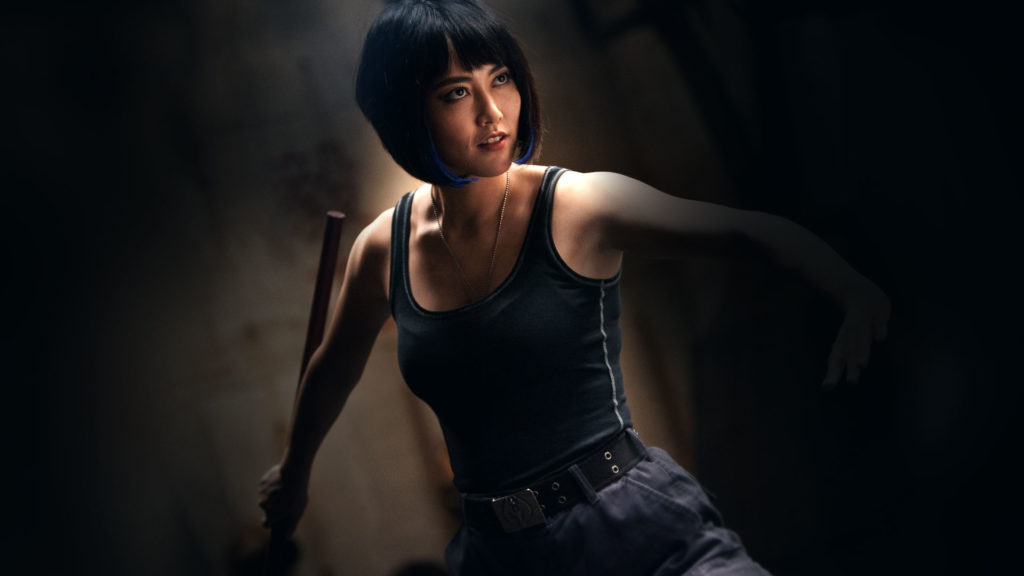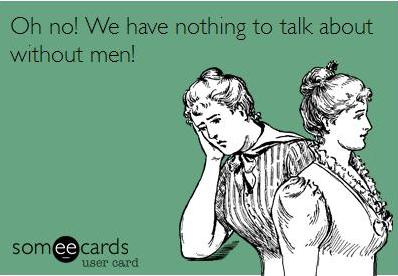
Mako Mori, The Bechdel Test, and Female Representation in Media
There has been a lot of talk going back and forth about the Bechdel Test. For those of you who aren’t in the know, the Bechdel Test is named after a cartoonist named Alison Bechdel who wrote a comic strip where one of the characters uses a test to decide which movies she watches. The rules are pretty simple and only require the fulfilment of three terms.
The movie/book/etc must feature:
1) Two women in it.
2) They must talk to each other.
3) The topic of conversation can’t be about a man.
I think the Bechdel test is important and more than that, I think it’s a good way to look at some of the things that are wrong in movies today. There is plethora of movies that do not pass this test. In fact, most of the first movies that come to mind wouldn’t pass this test. The problem is that people are using it as a way to judge movies. There are a lot of great movies and books that wouldn’t pass this test, but the Bechdel test isn’t there to judge greatness of a movie.
As explained by themarysue.com, the Bechdel test is “a lens through which to expose a misrepresentational tend in modern [media] overall rather than specifically.”
People who were upset that their movies didn’t pass the test will be happy to know that this doesn’t make them bad movies. There are people who also feel that applying the Bechdel test to media is imposing a feminist agenda, when really… Why would it be this scary agenda when it’s really equality? If women were allowed to converse with as many women in movies as men were able to speak with men and if they were able to converse about the diverse range of topics that men are able to, this test wouldn’t exist.
Movies like The Hobbit: The Desolation of Smaug, Star Trek Into Darkness, Now You See Me and Pacific Rim did not pass the Bechdel test.
There were some fans of Pacific Rim who were irked enough by this that they created a new test called the Mako Mori test which requires media to meet the following terms:
1) It must have a female character.
2) The female character must get her own narrative arc.
3) That narrative arc can’t be about supporting a man’s story.
This is a good test. I like it, but I still don’t think that we can decide a piece of media’s greatness by this test. I’m pretty sure that Life of Pi would fail this test for example. I think that the Alchemist would too. Both of these books are beautiful and well worth the time that it takes to read.
I think that people tend to take the Bechdel test too simply. It’s not a straightforward test that you can use to automatically categorize the merit of something. There are some great films which do not pass the test and there are some horrible ones which do.
Personally, I think it would be better to examine the tropes and do our best to circumvent and write around them. The Damsel in Distress trope is far more harmful to my mind. In the end, however, things like the examination of tropes and the Bechdel test are a way of easily breaking down the larger issues that we as a society face. Positive representation of women is harder to come by than positive representation of men and when there is positive representation of women, they tend to be stuck in certain areas only.
Things are changing though and while this is promising, I can understand the impatience that we’re not changing quickly enough from a society which favours Cis, Heterosexual, White males to one that is more inclusive of all minorities.
For those of you who are looking to write stronger female characters in your novels or looking to find ways to broaden your thinking when it comes to female representation in media, may I suggest the Feminist Frequency youtube channel? Her videos on tropes vs. women, particularly the tropes found in video games helped me to notice flaws in my own plots and writing. As the creator of Feminist Frequency, Anita Sarkeesian says, these tropes are more insidious than we realize simply because they’re so prevalent that we tend not to notice them any more.

